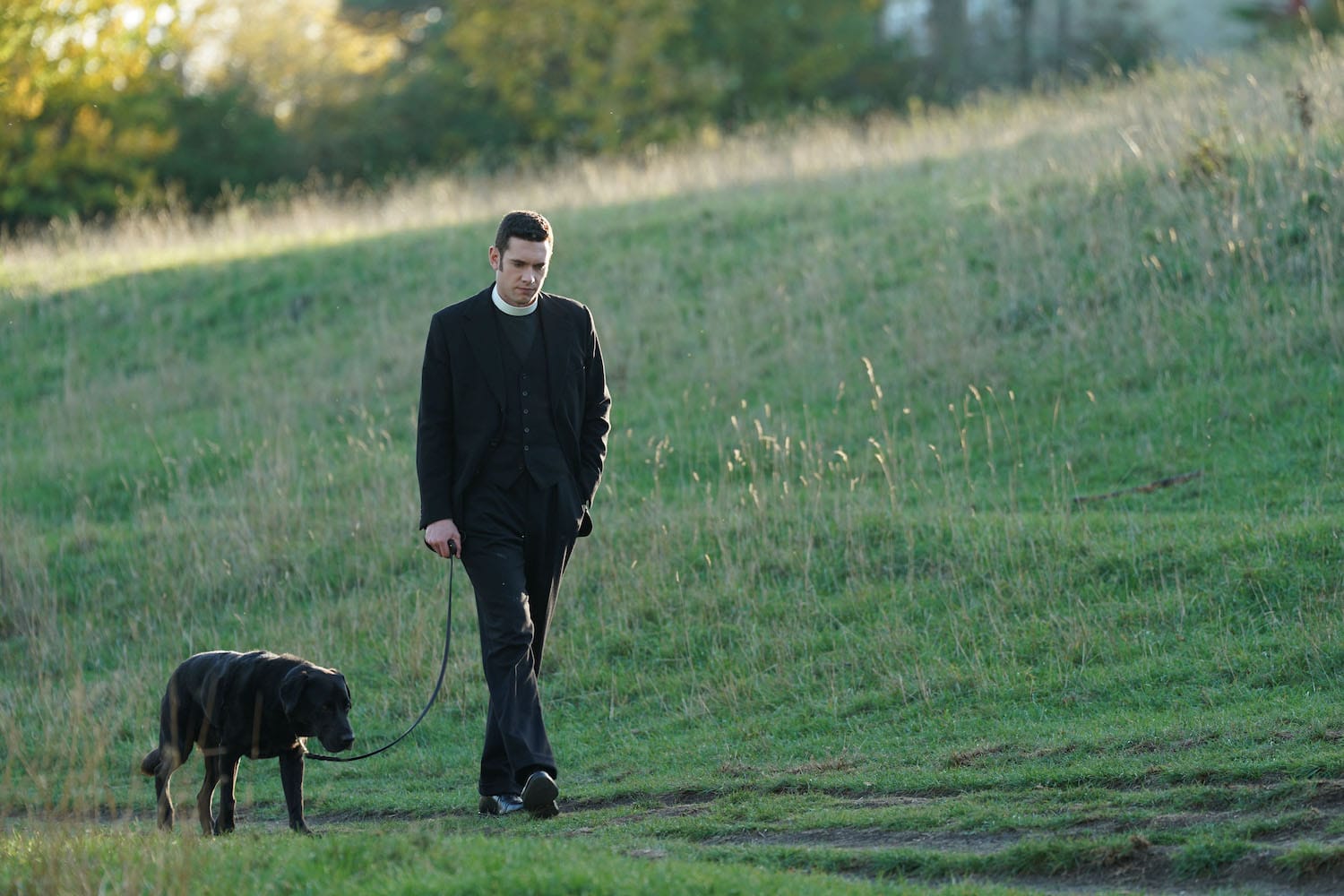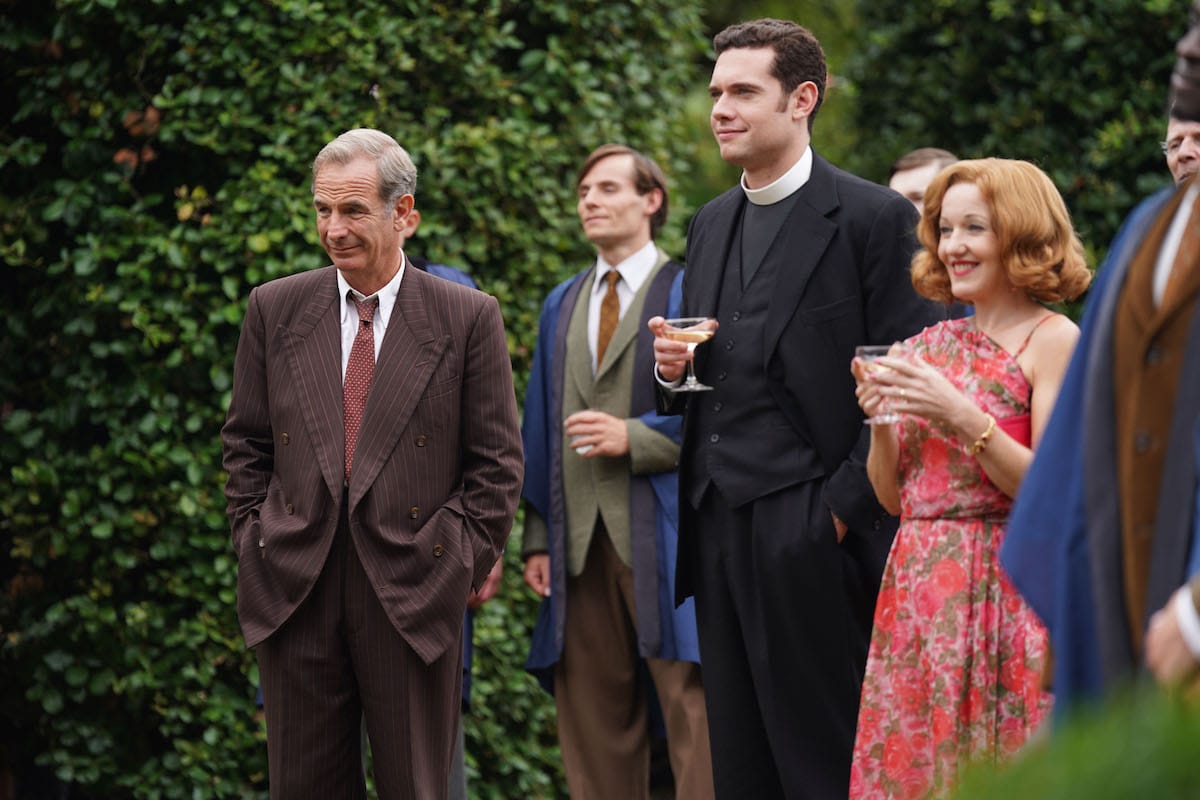As 'Grantchester' Season 8 Continues, Will Isn't As Fine as He Pretends to Be

Will Davenport may have avoided going to prison for his role in the motorcycle accident that killed an innocent passerby, but if the third episode of Grantchester Season 8 is anything to go by, he certainly hasn't escaped punishment. In the wake of last week's devastating accident, Will is clearly experiencing some form of PTSD while on the job with Geordie, grows increasingly resentful of the friends and loved ones who keep trying to stage various interventions meant to help him talk about his feelings, and lashes out at Cathy, Mrs. C. and Leonard for getting Bonnie to come home early.
For his part, Will insists he's really, very, completely fine and if he needs a friendly ear to talk to, he can always turn to God, right? That statement might be more convincing if this episode weren't the least religious installment of the season so far: There are no sermons brimming with Important Lessons, or stories from Deuteronomy made applicable to the hour's real life subplots. For all that we hear Will talk about praying, he's certainly not doing any of it, and essentially spends the hour chainsmoking with a variety of expressions that range from contemplative and melancholy to outright miserable.
Is Will questioning God's ultimate plan? Is he struggling to still believe in his own goodness? Is he wracked with guilt? In shock? Lost? It's hard to say because this episode is remarkably loathe to delve into Will's feelings too closely. Yes, something is clearly very wrong with him, and it doesn't look like it's something that will be resolved within the world of the show any time soon.

Tom Brittney in "Grantchester" Season 8
One of the more surprising elements of Grantchester has always been how willing it is to explore explicitly stories that center both female characters and explicitly feminist perspectives, and this hour, which turns the story of two crimes — a stolen painting and a shocking murder — into a complex tale of female choices, and the ways that lower class women go unseen and unheard in a world they essentially help run.
On loan to the local college, the painting sparks a feminist protest from a trio of female students who resent the way its presence reflects the treatment they receive from the men in charge of both the school and the community that supports it. After all, there's a line out the door to gaze upon a naked woman's body when it's a piece of art, populated by the same men who seek to shame and control women's choices in real life, by dictating the way they dress or controlling their lives they're allowed to live.
Even Peter, the lowly porter who is murdered at roughly the same time as the painting is stolen, treats women abominably. He's basically abandoned his pregnant wife, Shiela, telling her their marriage is over now that his new post at an academic institution allows him to pretend he belongs in the college's more rarified air, rather than at home with his lower-class seamstress spouse.
This whole episode is a surprising bit of honesty about the lives of women can and often do look like in this time period: As Ms. Scott tells Marianne, the student who stripped at the protest that kicked off the episode, sometimes women have to make compromises, to be in male-dominated spaces because it's more important that they be in those spaces, and force those who occupy them to acknowledge both their presence and worth.
From female college students struggling to be taken seriously and a woman trying to find a way to survive in a world where a man abandons her and faces no consequences for it to a cleaning lady who uses the fact that no one sees her as important enough to remember to try and get away with a bit of well-meaning murder, this is an episode about compromises and hard truths. Even Cathy Keating is questioning how her husband will react to the news that she wasn't fired the way they both assumed she would be, but promoted, and is now excelling in her career just as he's being forced to wind his own down.
That Josephine is willing to kill her friend's husband may seem a bit... intense, but it's true: no one in the legal system is particularly interested in the fate of a woman like her, or Sheila for that matter, and she's frustrated by a lifetime of feeling invisible and unheard. And bonus points: if Sheila's husband was the victim of a tragic fate, well. She's a widower and free to start over, not a woman who's been shamefully left behind by a man. (Wild how she's the one being punished for his choice!)
There's also a larger theme running through the hour about class alongside gender — women like Josephine are invisible not just because they're women but because they're lower class women. Dr. Abbott is far more concerned about the fate of the painting he's obsessed with than the fact that its theft was used to camouflage a man's death, a man he'd ostensibly seen at his place of work many times. And he's more interested in punishing the upper class students who embarrassed him by taking their clothes off (despite the fact that they didn't really commit any crimes) than he is about remembering a woman who regularly cleaned his office for him even existed. To him, Josephine and women like her don't exist, and unfortunately, I don't think he's alone in that attitude.
(That it's Geordie who gets furious about Abbott's behavior should probably tell you all you need to know about how wretched it is.)

Tom Brittney, Robson Green and Kacey Ainsworth in "Grantchester" Season 8
As episodes go, this installment of Grantchester is fine — more thematically rich than perhaps technically compelling, and a little lighter on the inner workings of its main character than I'd have expected at this point in the season, and so close to the tragic events that will clearly form the bulk of his emotional arc this season. (And the whole painting subplot really isn't as interesting as the show wants it to be, though it is the narrative engine behind the rest of the story.)
That said, I'm continually impressed by the show's depth, and the way that its mysteries are almost never actually about the crimes themselves, but what they say about the world the characters inhabit and the larger societal messages within it. For all that this is a show about a vicar and his detective friend who solve crimes, something like 75% of this hour is about the women who live alongside them. A fact that's not only remarkable in and of itself, but something every other show like this would do well to take a lesson from.
I don't know what Grantchester Season 9 will look like when Tom Brittney departs, or whether this larger story of his depression will play into Will's ultimately decision to leave this place and his family in it behind. But what I do know is the reason this show can and will continue as long as it wants to is because of the world and characters its built up around him, who are put to such satisfying use here.




